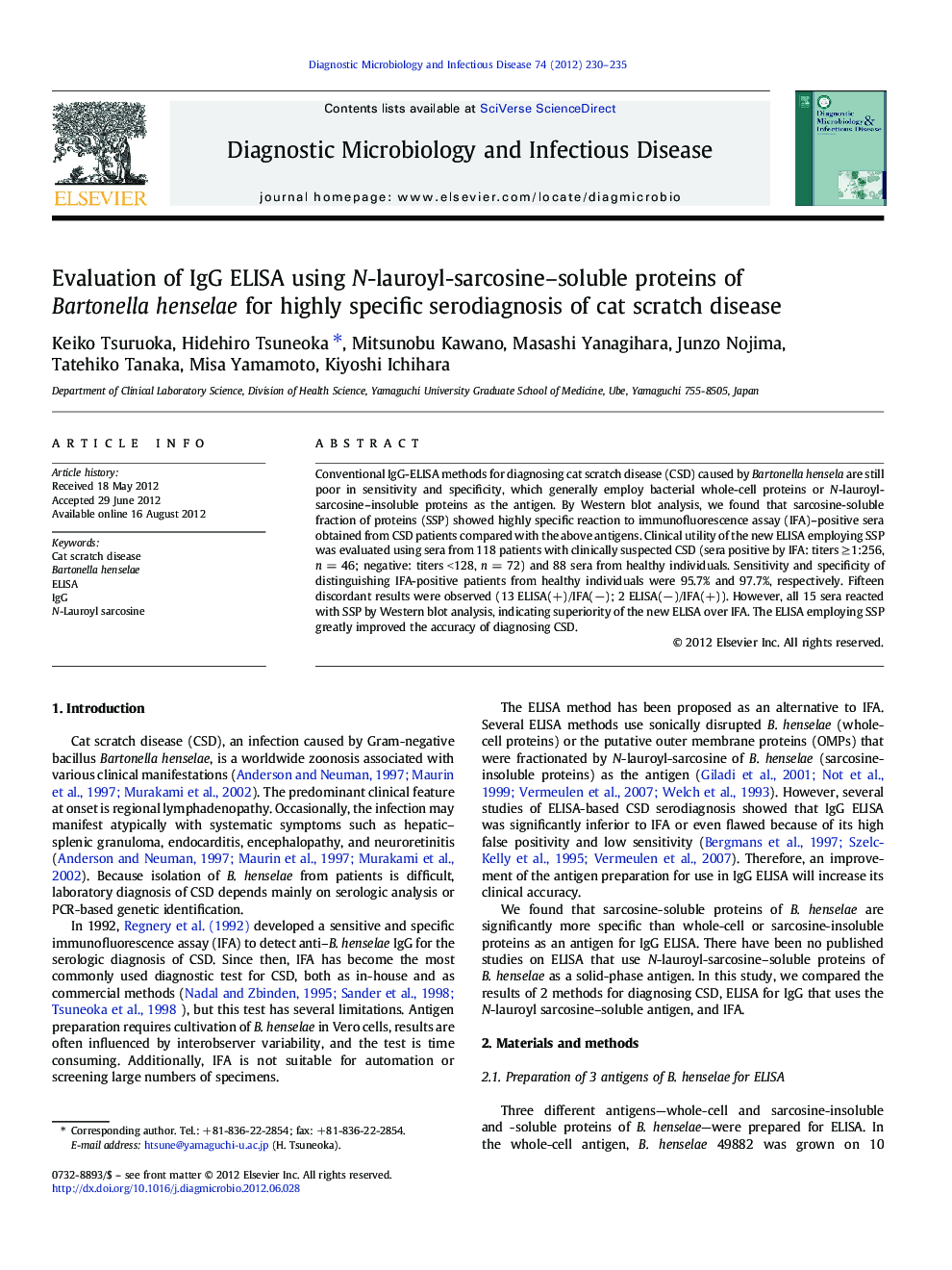| Article ID | Journal | Published Year | Pages | File Type |
|---|---|---|---|---|
| 6116435 | Diagnostic Microbiology and Infectious Disease | 2012 | 6 Pages |
Abstract
Conventional IgG-ELISA methods for diagnosing cat scratch disease (CSD) caused by Bartonella hensela are still poor in sensitivity and specificity, which generally employ bacterial whole-cell proteins or N-lauroyl-sarcosine-insoluble proteins as the antigen. By Western blot analysis, we found that sarcosine-soluble fraction of proteins (SSP) showed highly specific reaction to immunofluorescence assay (IFA)-positive sera obtained from CSD patients compared with the above antigens. Clinical utility of the new ELISA employing SSP was evaluated using sera from 118 patients with clinically suspected CSD (sera positive by IFA: titers â¥Â 1:256, n = 46; negative: titers < 128, n = 72) and 88 sera from healthy individuals. Sensitivity and specificity of distinguishing IFA-positive patients from healthy individuals were 95.7% and 97.7%, respectively. Fifteen discordant results were observed (13 ELISA(+)/IFA(â); 2 ELISA(â)/IFA(+)). However, all 15 sera reacted with SSP by Western blot analysis, indicating superiority of the new ELISA over IFA. The ELISA employing SSP greatly improved the accuracy of diagnosing CSD.
Related Topics
Life Sciences
Immunology and Microbiology
Applied Microbiology and Biotechnology
Authors
Keiko Tsuruoka, Hidehiro Tsuneoka, Mitsunobu Kawano, Masashi Yanagihara, Junzo Nojima, Tatehiko Tanaka, Misa Yamamoto, Kiyoshi Ichihara,
